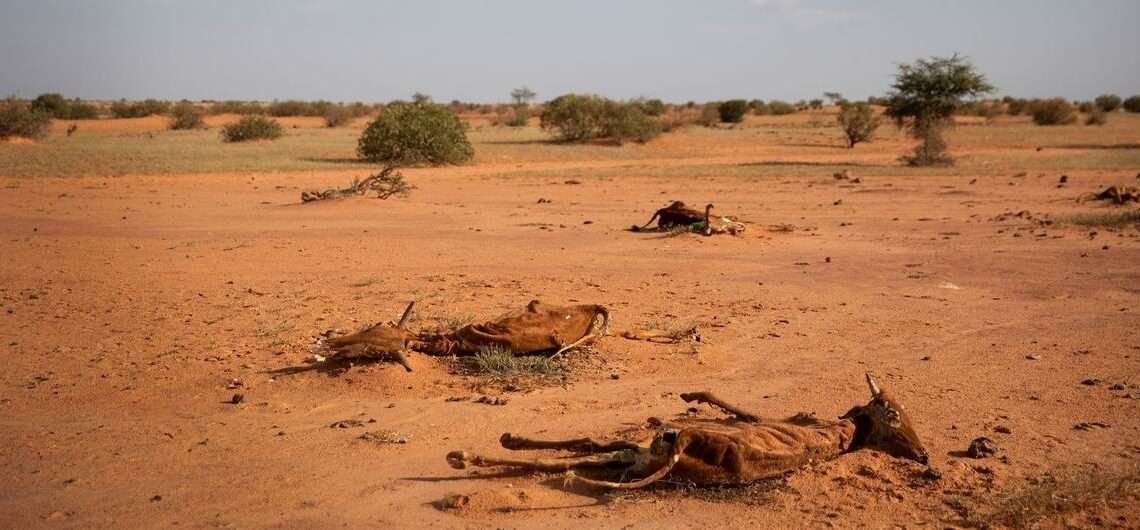Droughts, once seen as localized natural phenomena, have now become a “slow onset, silent killer” with far-reaching impacts.
This warning was issued by Ibrahim Thiaw, the Executive Secretary of the UN Convention to Combat Desertification (UNCCD), at the COP16 summit in Riyadh, Saudi Arabia.
The conference, which brings together global leaders, aims to establish a new global drought regime focused on proactive preparedness rather than reactive responses.
According to Thiaw, droughts have intensified by nearly 30% in both frequency and severity since 2000. The phenomenon, fueled by climate change and unsustainable land practices, now threatens agriculture, water security, and the livelihoods of 1.8 billion people worldwide. Nations with fewer resources are particularly vulnerable, but no country is immune.
In the past three years alone, over 30 countries have declared drought emergencies. The list includes global powers such as the United States, Canada, and Spain, alongside nations like Uruguay, South Africa, and Indonesia.
The impacts are diverse but uniformly devastating. Grain shipments were delayed on Europe’s Rhine River, trade routes through the Panama Canal were disrupted, and hydropower supplies dwindled in Brazil, which relies on water for more than 60% of its electricity.

Even urban areas like New York City have felt the strain, with firefighters battling a rare bushfire in November following weeks of dry conditions.
“Droughts have expanded into new territories. No country is immune,” said Thiaw, predicting that by 2050, three out of every four people globally — potentially up to 7.5 billion — will face the effects of drought.
Droughts are rarely isolated events. While often triggered by reduced rainfall, their severity is amplified by human actions like deforestation and poor land management.
For instance, a deforested hillside loses its resilience against extreme weather, becoming more prone to both drought and flooding.
Once droughts take hold, they set off a chain reaction. Heatwaves intensify, floods worsen, and the risks to communities escalate. These cascading disasters result in long-term human, economic, and ecological costs, deepening the cycle of vulnerability and underdevelopment.
Around 70% of the world’s freshwater is managed by subsistence farmers, many of whom reside in low-income countries. Their dependence on water for agriculture means drought can lead to food shortages, job losses, and forced migration. This, in turn, heightens the risk of instability and conflict as competition for dwindling resources grows.
A Development and Security Priority
UNCCD Deputy Executive Secretary Andrea Meza emphasized that the effects of drought go beyond environmental concerns. “Drought is not merely an environmental matter. It is a development and human security issue that we must urgently tackle from across all sectors and governance levels,” she stated.
The rapid escalation of droughts due to climate change and human-induced factors underscores the inadequacy of the traditional reactive approach. Building resilience requires long-term planning and sustainable resource management, often implemented at the local level where the impacts are most acute.
The COP16 summit serves as a pivotal moment for global action on droughts. Leaders and experts are working to create a framework that shifts from short-term relief efforts to addressing root causes.
By tackling climate change, promoting sustainable land use, and fostering international cooperation, this global drought regime aims to protect vulnerable communities and critical ecosystems.
Thiaw urged world leaders to act decisively, warning that delays would only exacerbate the crisis. He noted that the interconnected nature of modern droughts, which disrupt trade, energy supplies, and migration patterns, makes a global response essential.
READ ALSO: Senanu Condemns Vote Buying and Vote Selling, Calls for Swift Investigations



















